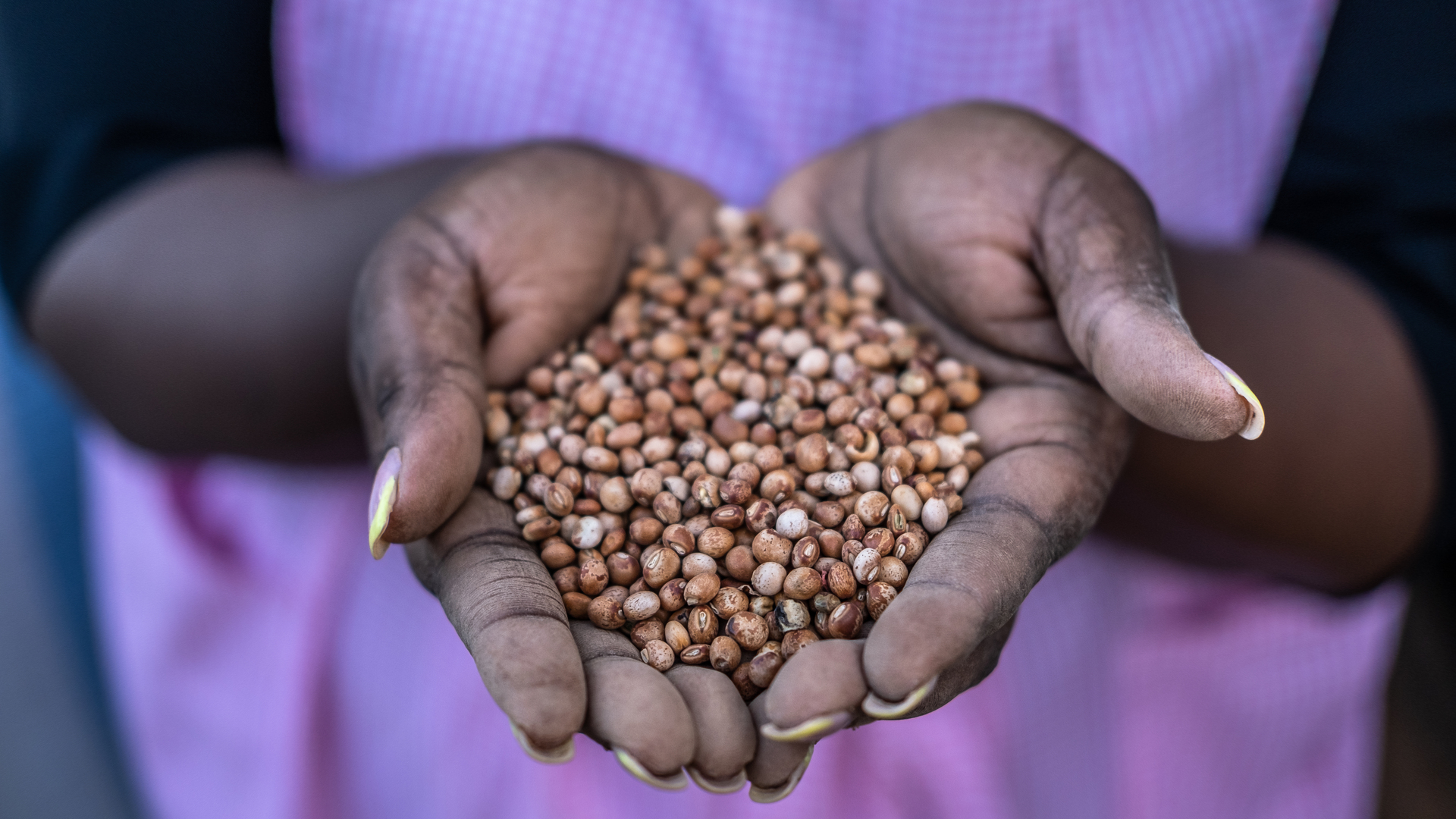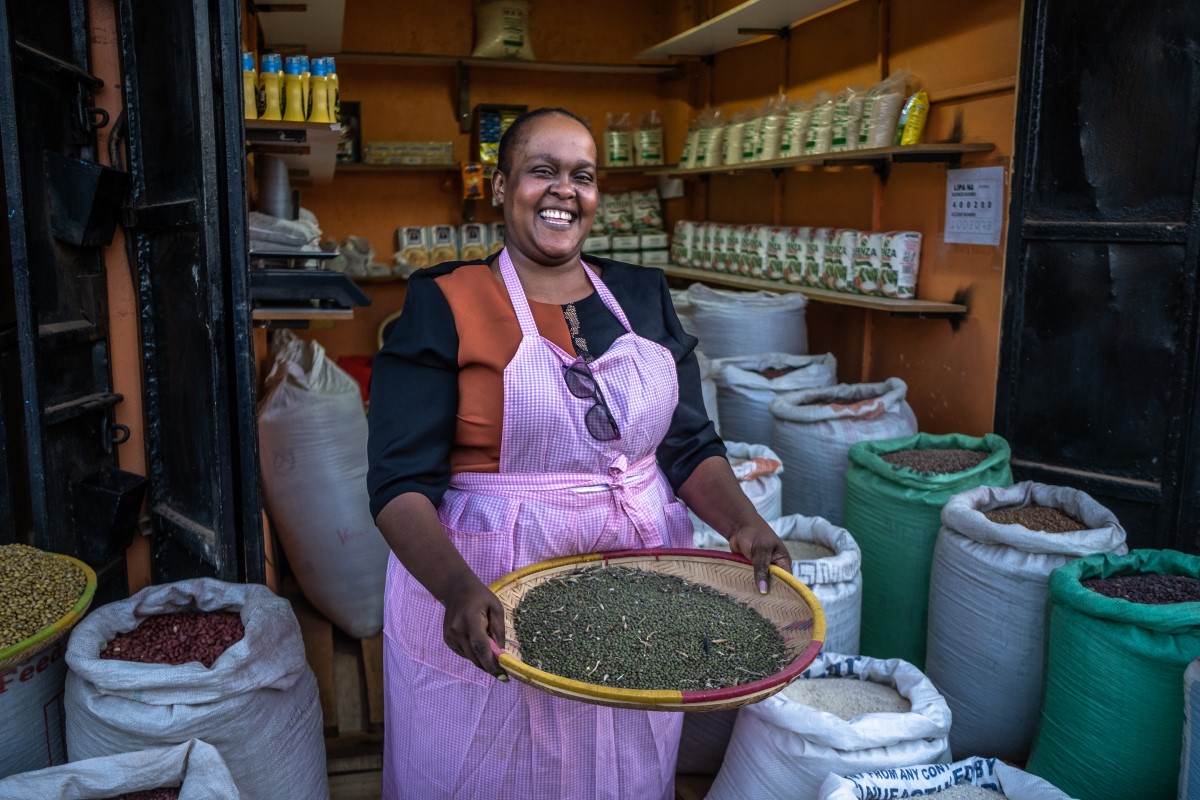
3 Transformative Types of Microfinancing in Africa

Written by Charity Nyawira on 22 November 2023
At least 80% of jobs in Africa are created by Micro, Small, and Medium-Sized Enterprises (MSMEs). These businesses sustain millions of livelihoods and boost the economies of many African countries1. Unfortunately, most MSMEs struggle to get financing, top among the reasons being unpredictable cash flows and high interest rates charged by lenders.
Loans from microfinance institutions (MFIs) are helping to close the lending gap so these important businesses can thrive. Through MFI loans, low-income individuals can buy essential goods for their small businesses and achieve financial independence.
Lendahand has been helping African MFIs that carry out ethical business practices and are driven by making a social impact access financing, as these provide MSME entrepreneurs with the necessary capital to grow and run their businesses. The Lendahand investment team carefully evaluates each MFI for a few months to a year before offering their projects on the crowdfunding platform, to ensure that finances reach the neediest entrepreneurs.
The growth and existence of MSMEs makes an important contribution to the fight against poverty on a household and community level. Three types of microloans in particular transform lives on a larger scale, being: group loans, agri loans, and working capital loans for businesses that provide essential community goods and services.
1.Group Loans
Group loans are a breakthrough for solo business people who don’t qualify for financing, for instance, if they cannot raise enough collateral to guarantee their loan.
To give growth opportunities to these business people as well, MFIs extend group loans to a group of (female) entrepreneurs (usually 5-20 members). Such groups often accumulate joint savings, easing access to loans. With group loans, multiple individuals and families benefit at once, increasing the economic growth around a community2.
Group loans help achieve shared prosperity
Group loans are a great tool for empowering women, especially less-educated ones. A study on “Group lending as a source of women empowerment”2 revealed that less-educated women are more comfortable borrowing as a group. 29% of these women have a higher chance of doing business when they are part of a group.
Further, group loans also change the social perception of women. According to the above study, Tanzanian women who gained entrepreneurial skills and could contribute to household income gained self-confidence and respect.
U&I Microfinance, KWFT, and Fortune Credit in Kenya are some of Lendahand’s successful African group microloan projects.
2. Working Capital Loans For Businesses That Serve Essential Community Needs
In extremely remote areas, basic needs like water, healthcare, and fresh foods are a luxury for residents. Funding businesses that can provide essential goods and services in these areas dignifies these residents.
Dispensaries and pharmacies
It’s not uncommon to find people in remote areas walking long distances to access health services. Pharmacies and private health practices established in such areas help to reduce that healthcare gap. Studies have shown that these health facilities reduce mortality and increase community health3.
According to a study on the role of formal, informal, and private practitioners in child survival in Nigeria, 58% of people considered private clinics and pharmacies a primary source of health consultation compared to 40% for government hospitals. In Uganda, 41% of people visited private practices and pharmacies for their health needs, compared to 17% who went to government hospitals3.
Lendahand has been part of empowering these vital community services by funding MFIs that have financed health facilities like Ecopharm Limited and Walgreen Pharmacy. The microloan to Ecopharm helped the business increase its operations in low-income areas and open a wholesale outlet to increase accessibility and affordability of critical medicines. By offering medicines late at night, Walgreen ensures that people have access to healthcare whenever they need it.
Grocery and cereal stores
Grocery stores in rural communities enhance community well-being by providing access to healthy foods.
Microloans empower grocery store owners to increase their range of products so that they can buy stocks in bulk and save on the high transportation costs from urban areas. Grocery stores also lead to better living standards and the economic growth of communities by:
- Eliminating the need to travel, saving time and money, and the environmental impact of transportation;
- Supporting local farmers and suppliers and creating jobs;
- Attracting new residents and businesses to a town, which leads to a thriving community;
- Leading to the establishment of other businesses, such as restaurants and cafes.
Cereals are central to food security in Sub-Saharan Africa (SSA), securing nutritious food for the poorest people. Research indicates that the top cereals: rice, maize, and wheat, provide over 40% of total calories and proteins, more than fish, milk, eggs, and wheat combined4.
In areas where there’s seasonal famine during dry seasons, supporting cereal storage and selling businesses ensures a continuous supply of healthy food for communities. The financing raised through Lendahand has impacted entrepreneurs and communities by funding various grocery and cereal businesses in Africa through its partner MFIs.
Through the microfinance institution U&I, for example, Theresia was able to secure the necessary financing to open her cereal store in Nairobi, Kenya. Read more about her story here.

3. Agriloans
African small-scale rural farmers are the foundation of the food system in Africa, yet millions of them live in poverty while wrestling climate change. About 25-30% of the GDP in Kenya, Rwanda, Tanzania, Uganda, and Zambia comes from agriculture, yet these countries account for only 2- 7% of total bank loans5.
Thanks to agriloans, farmers, and businesspeople can make use of land, which leads to food security, improved livelihoods, and booming rural and national economies. Types of agriloans include loans for:
- Acquiring farming land (like the Luwana Women Group loan by Lendahand)
- Agri-equipment like solar pumps and excavators for digging ponds and irrigation systems
- Buying farming inputs
- Processing of agricultural produce (like the Lendahand loan to Rabboni Group Limited maize milling business)
- Creating markets for agricultural products (like the Yak Fair Trade loan by Lendahand)
Invest Through Lendahand To Fund Impactful Businesses
Lendahand assesses MFIs so they offer affordable loans to businesses that need them the most.
With the help of our amazing crowd of investors, we support small businesses to grow from informal to formal entrepreneurs who improve their and their communities’ living standards. Be part of the transformation by supporting our live projects today.
